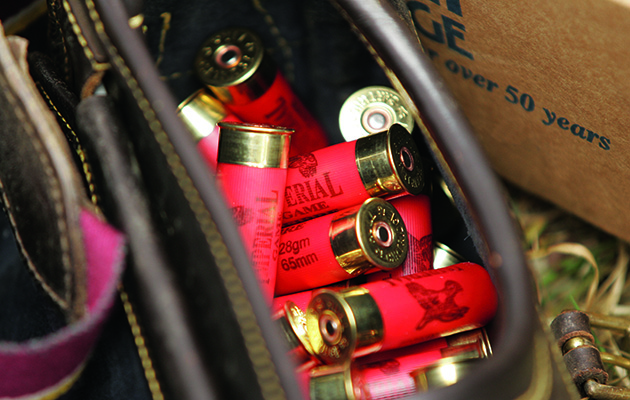Lead Ammunition Group slammed after leak of “anti-lead” report summary
Countryside organisations have criticised the Lead Ammunition Group for releasing a summary of its report ahead of DEFRA's peer review

The Lead Ammunition Group (LAG) has been criticised for a perceived anti-lead bias, following the publication on its website of a letter from group chairman John Swift, summarising the findings of the as-yet unpublished or peer-reviewed LAG report.
The correspondence is a copy of the cover letter, dated June 2015, which accompanied Mr Swift’s and other remaining LAG group members’ report to DEFRA secretary of state Elizabeth Truss.
The LAG was set up in 2010 to investigate the possible risks to wildlife and human health from lead ammunition. Over the past year, five out of 10 LAG members have resigned, citing a lack of confidence in the process and a perceived bias from Mr Swift.
In the letter, Mr Swift states: “There is no convincing evidence, yet available, that anything other than an eventual phase out of lead ammunition and phase in of the non-toxic alternatives will [address risks to wildlife and human health].”
Mr Swift then goes on to summarise the contents of the report, including claims that there are as many as 10,000 children at risk of neurodevelopmental harm from eating game shot with lead ammunition, that “hundreds of thousands” of birds are killed annually in the UK through lead ingestion and that there is no alternative other than lead shot replacement that will address the risks to human health.
The final report is not yet published as it is still pending peer review and may be amended. The claims in the letter cannot yet be substantiated as the report was supposed to remain confidential until publication.
The publication of this letter appears to disregard the wishes of DEFRA, which told Shooting Times two weeks ago that our Freedom of Information request for a full copy of the LAG report was denied because it believed “It would not be in the public interest to release the report as that would, or would likely, prejudice the formulation and development of government policy by prompting uninformed comment and speculation.” Some websites, however, have already reported the summary erroneously as “the findings of the Lead Ammunition Group”.
Countryside Alliance chief executive Tim Bonner criticised the LAG for publishing the letter: “The decision to release this letter three months after it was written shows clearly that the objective of the remaining members of the now role-less Lead Ammunition Group is to achieve an outright ban on lead ammunition. However, their knowledge that DEFRA’s planned peer review process will systematically pick apart and undermine their report seems to have resulted in a decision to cause as much destruction as possible in the meantime.”
BASC chairman Alan Jarrett was similarly critical: “The chair of the LAG has ignored the terms of reference set for the group by DEFRA. It is a further confirmation of the failures in process, which resulted in the mass resignation of many members of the LAG before the production of the report by those who remained.
“The letter completely undermines the requirement for confidentiality because it publishes a summary of the report’s contents and conclusions before it has been examined. BASC’s position remains the same: ‘No sound evidence, no change.’”
Buy next week’s issue (available 16 September) to read an exclusive interview with Lead Ammunition Group chairman John Swift and we get reaction from leading countryside organisations.








